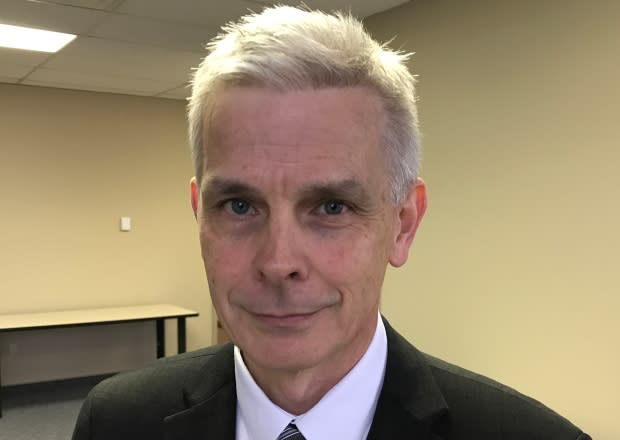How a mysterious half-billion-dollar Muskrat contingency was overlooked by government
The curtain of mystery over a half-billion-dollar strategic risk allowance that was excluded from the final cost estimates for Muskrat Falls was pulled back a shade Thursday.
Documents were produced at the public inquiry that is examining the controversial hydro project that show Nalcor Energy appears to have offered an explanation to Newfoundland and Labrador's utility regulator, the PUB, in 2012.

A former senior bureaucrat, however, questioned whether Nalcor did enough to inform government, the lone shareholder in Muskrat Falls, about such a risk.
Meanwhile, the issue may not be exposed to the full light of day until current and former senior Nalcor officials take the witness stand in the coming days at the public inquiry.
A deliberate strategy to lower costs?
That was one of many areas covered Wednesday and Thursday as Robert Thompson, who served nearly a decade as the province's top public servant, testified at the inquiry.
A consulting company specializing in risk management recommended to Nalcor that it include a $497-million strategic risk allowance in its cost estimates.
But this was not included in the estimates released to the public by Nalcor and government when a partnership was reached with Nova Scotia's Emera in late 2010.
The allowance was also excluded from the $6.2 billion capital cost estimate at the time of sanctioning in 2012, though a 15 per cent "tactical" allowance was included.
This omission was highlighted by Grant Thornton in its forensic and investigative audit of the decision to sanction Muskrat, with Nalcor explaining to Grant Thornton that strategic exposure "was to be funded through contingent equity from (the provincial government)."
Critics have charged this was part of a larger and deliberate strategy by Nalcor to keep estimates as low as possible in order to win public support for the project, which is now billions over budget and at least two years behind schedule.
Nalcor lawyer produces documents
Witnesses from both Nalcor and government have repeatedly said they knew nothing about this allowance, and this includes Thompson.
Thompson was the province's most senior public servant for two separate stints between 2003 and 2013, and also served briefly during that period as deputy minister for Natural Resources, the department with oversight for government-owned Nalcor.

"I don't have an explanation as to why it wasn't presented to us," Thompson testified on Wednesday.
"So I'm really looking forward to hearing that explanation."
But according to documents produced by Nalcor lawyer Dan Simmons, the issue of strategic risk was explained to the PUB while the regulator was reviewing the project in 2011-12, and this information was available to government.
Nalcor says risks were mitigated
Nalcor explained in response to a request for information that "substantial" progress in mitigating risk allowed it to remove the strategic risk allowance ahead of the agreement with Emera.
And in the PUB's March 2012 final report on Muskrat Falls, there's reference to a reserve amount disclosed to the regulator in a "confidential exhibit"

According to this report, Nalcor told the PUB it did not include a strategic reserve because of savings associated with the federal loan guarantee, and the use of conventional technology for the Labrador-Island transmission link.
"This document was disclosed and available to anyone in government," Simmons said.
Thompson acknowledged that, but added: "We would have expected as well from Nalcor in the course of meetings ... that if this is a key decision variable that needed the attention of the shareholder, that it would have been brought up."
We would have expected as well from Nalcor in the course of meetings ... that if this is a key decision variable that needed the attention of the shareholder, that it would have been brought up. - Robert Thompson
Former Nalcor CEO Ed Martin routinely briefed government on issues related to risk, Thompson explained, but he could not recall any briefings related to tactical or strategic risk, or any reference to the allowance.
"My only surprise would have been that as a key decision variable, we hadn't talked about it and been briefed about it in these terms. So when I read this it seemed like new information to me," Thompson said.
Meanwhile, Martin and other key figures in the planning and execution of Muskrat will provide testimony on this and a multitude of other critical issues when they appear before the inquiry.
Read more articles from CBC Newfoundland and Labrador

